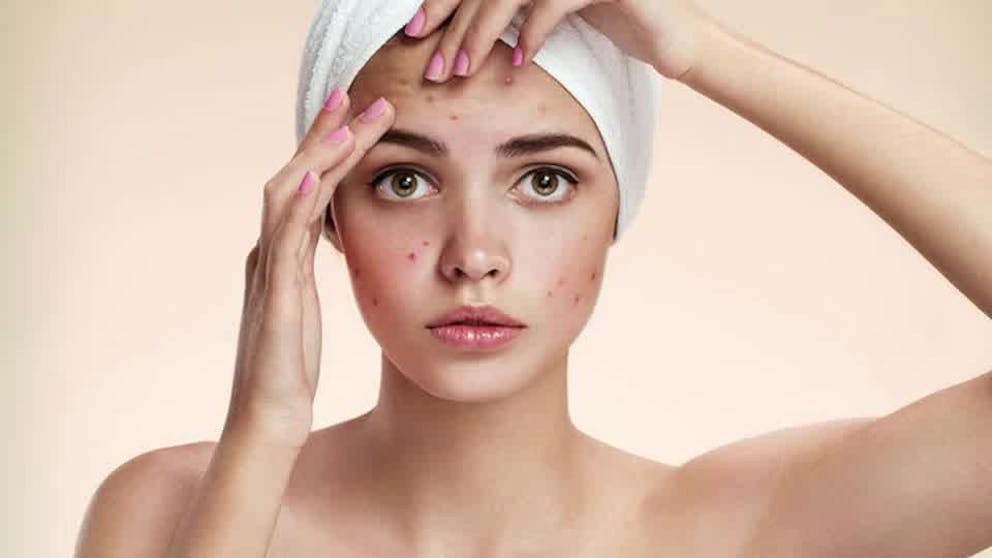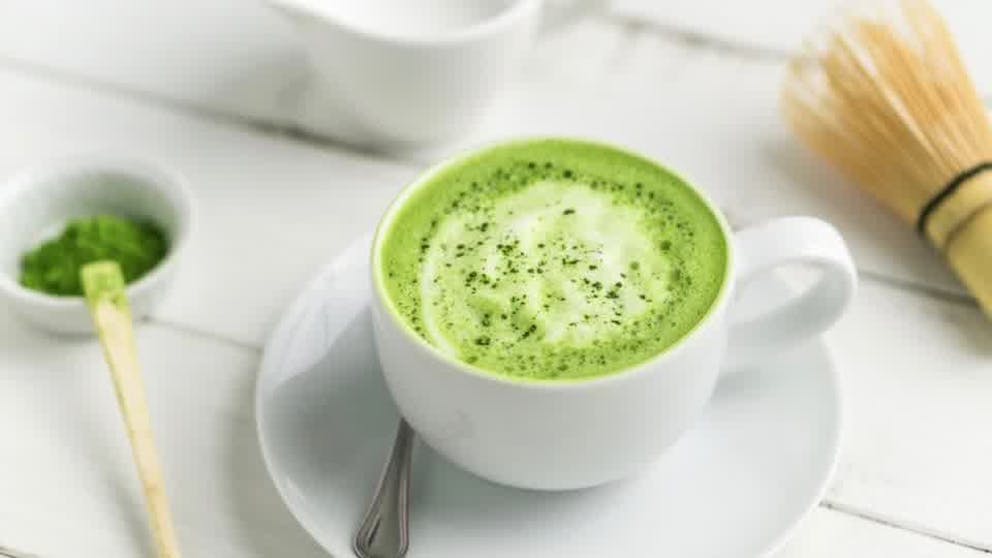How to Permanently Eliminate Acne
Acne. It's more than just a few spots on your face; it's a battle many of us wage quietly behind closed doors. Imagine waking up, and the first thing you do is run to the mirror, hoping today might be different.
But there it is—the redness, the bumps, and maybe even pain. Tea tree oil, green tea... You've heard these names thrown around in forums and by that one friend who swears by natural remedies.
The average person tries countless products before finding something that works—if they ever do. From apple cider vinegar concoctions to high-end skincare lines promising miracles overnight.
And yet, here we are, still searching for answers in an ocean of half-truths and exaggerated claims.
Within nature, and some well-timed dietary tweaks. Amidst all the noise about quick fixes and instant results lie real solutions with roots reaching centuries.
Understanding Acne: Causes and Contributing Factors
Acne is a complex skin condition that affects millions of people worldwide. It's not just a teenage problem - many adults struggle with acne, too. But what exactly causes those pesky pimples and breakouts?
To understand acne, we must dive into the biological and environmental factors contributing to its development. Hormonal changes and lifestyle choices can play a significant role in the formation of acne.
The Role of Hormones in Acne
Hormones, especially androgens, are a major factor in acne. Androgens are male hormones that increase during puberty, producing more sebum. Sebum is an oily substance that helps keep skin moisturized.
But when there's too much sebum, it can clog pores and create the perfect breeding ground for acne-causing bacteria. Enlarged sebaceous glands produce excess sebum, which contributes to the formation of those dreaded pimples.
How Lifestyle Affects Acne
It's not just hormones that can wreak havoc on our skin - our lifestyle choices matter, too. Diet and stress are two significant factors that can impact acne breakouts.
Studies have shown that certain foods, like high-glycemic foods and dairy products, may trigger or worsen acne in some people. Stress can also cause inflammation in the body, which can exacerbate acne symptoms.
Acne commonly appears on the face and back, with more sebaceous glands. During puberty, androgens increase, producing more sweat and enlarged sweat glands. This excess sebum can clog pores and contribute to the development of acne.

The Science Behind Acne Inflammation and Bacterial Growth
Acne isn't just about clogged pores - inflammation and bacteria also play a significant role in the severity of breakouts. Let's take a closer look at the science behind these two factors.
Understanding Inflammation in Acne
Inflammation is a common symptom of acne, causing redness, swelling, and sometimes pain. When a pore becomes clogged with sebum and dead skin cells, it creates an ideal environment for bacteria to thrive.
The body's immune system responds to this bacterial invasion by sending white blood cells to fight off the infection. This process leads to inflammation, making acne more noticeable and uncomfortable.
The Bacterial Aspect of Acne
The main culprit behind acne-related inflammation is a bacteria called Propionibacterium acnes, or P. acnes for short. This bacteria is naturally present on our skin but can multiply rapidly when trapped inside clogged pores.
As P. acnes grows, it produces propionic acid, which contributes to inflammation and can cause an unpleasant odor. The combination of inflammation and bacterial growth can lead to more severe forms of acne, such as nodules and cysts.
Understanding the science behind acne inflammation and bacterial growth is crucial for developing effective treatment strategies. By targeting these underlying causes, we can help reduce the severity and frequency of acne breakouts.
Natural Remedies and Dietary Adjustments for Acne Control
While there are many over-the-counter and prescription treatments for acne, some people prefer to take a more natural approach. Natural remedies and dietary adjustments can effectively manage acne symptoms and promote clearer skin.
The Role of Diet in Managing Acne
What we eat can have a significant impact on our skin health. Studies have shown that a ketogenic diet, which is low in carbohydrates and high in healthy fats, may help balance hormones and reduce bacterial growth.
A ketogenic diet can help regulate insulin levels by limiting sugar and processed foods, which can positively affect acne. Insulin plays a role in hormone balance, and high insulin levels can contribute to increased sebum production and inflammation.
Vitamins Essential for Acne Prevention
Specific vitamins are crucial for maintaining healthy skin and preventing acne. Vitamin A, for example, helps regulate sebum production and promotes cell turnover, which can help keep pores clear.
Vitamin E is another essential nutrient for skin health. Its antioxidant properties can help protect the skin from damage and reduce inflammation. Incorporating foods rich in vitamins A and E, such as leafy greens, nuts, and seeds, can benefit acne-prone skin.
The Limitations of Antibiotics
Antibiotics are often prescribed to treat acne, but long-term use can have some drawbacks. Over time, bacteria can resist antibiotics, making them less effective.
Additionally, antibiotics can disrupt the balance of beneficial bacteria in the gut, which can negatively impact overall health.
While antibiotics can be helpful in some instances, it's essential to be mindful of their limitations and potential side effects.
Incorporating natural remedies and dietary adjustments into your acne treatment plan can safely and effectively manage symptoms and promote clearer, healthier skin.

Unlocking Clear Skin with Keto, Fasting, and Matcha Marvels
Exploring the synergies of keto, fasting, and matcha in the quest for clear skin offers promising avenues. Matcha, a powdered green tea, contains potent antioxidants and metabolism-boosting properties, ideal for a keto lifestyle.
While matcha is low in carbs, its inclusion in a ketogenic diet should be mindful of overall carb intake. Hence, answering the question, "Is matcha keto?" involves understanding portion control and its role within one's daily carbohydrate limit.
Conclusion
So, here we are at the end of our journey through nature's remedy kit and the quiet power of dietary shifts for battling acne.
It turns out that hope doesn't come with a hefty price tag or from harsh chemicals; it's nestled in the foods we eat and when we choose to eat them.
The ketogenic diet isn't just a trend—it's a battle strategy against inflammation, while intermittent fasting emerges as an unexpected ally, balancing hormones one fasted hour at a time.
We've traversed past surface solutions, digging into how our bodies respond to what we consume and how this can fuel or fight off those pesky breakouts.
Vitamins A and E are more than just letters in the alphabet soup; they are essential warriors in skin health. Antibiotics may offer quick fixes but turn sour on us over time, reminding us that sometimes patience does indeed yield its own rewards.
The narrative spun around acne remedies is vast and often confusing, yet armed with knowledge about keto diets, fasting protocols, and herbal aids—we no longer wander through skincare aisles.
We’re equipped now more than ever to make choices that don’t just mask symptoms but get down to business fixing what fuels them.
This isn’t another ending where you're left standing with empty promises; it’s an invitation to relook at your plate as sustenance and as your secret weapon against acne.
Forget waiting for miracles in bottles; let’s start believing in the magic within nature—and ourselves—to transform our skin from within.
Previous blog
Tired After Eating on OMAD or One Meal a DayTags

Popular
08/21/2024
55.7K views
02/23/2025
46.8K views
11/18/2024
281.1K views
03/18/2024
11/21/2022




